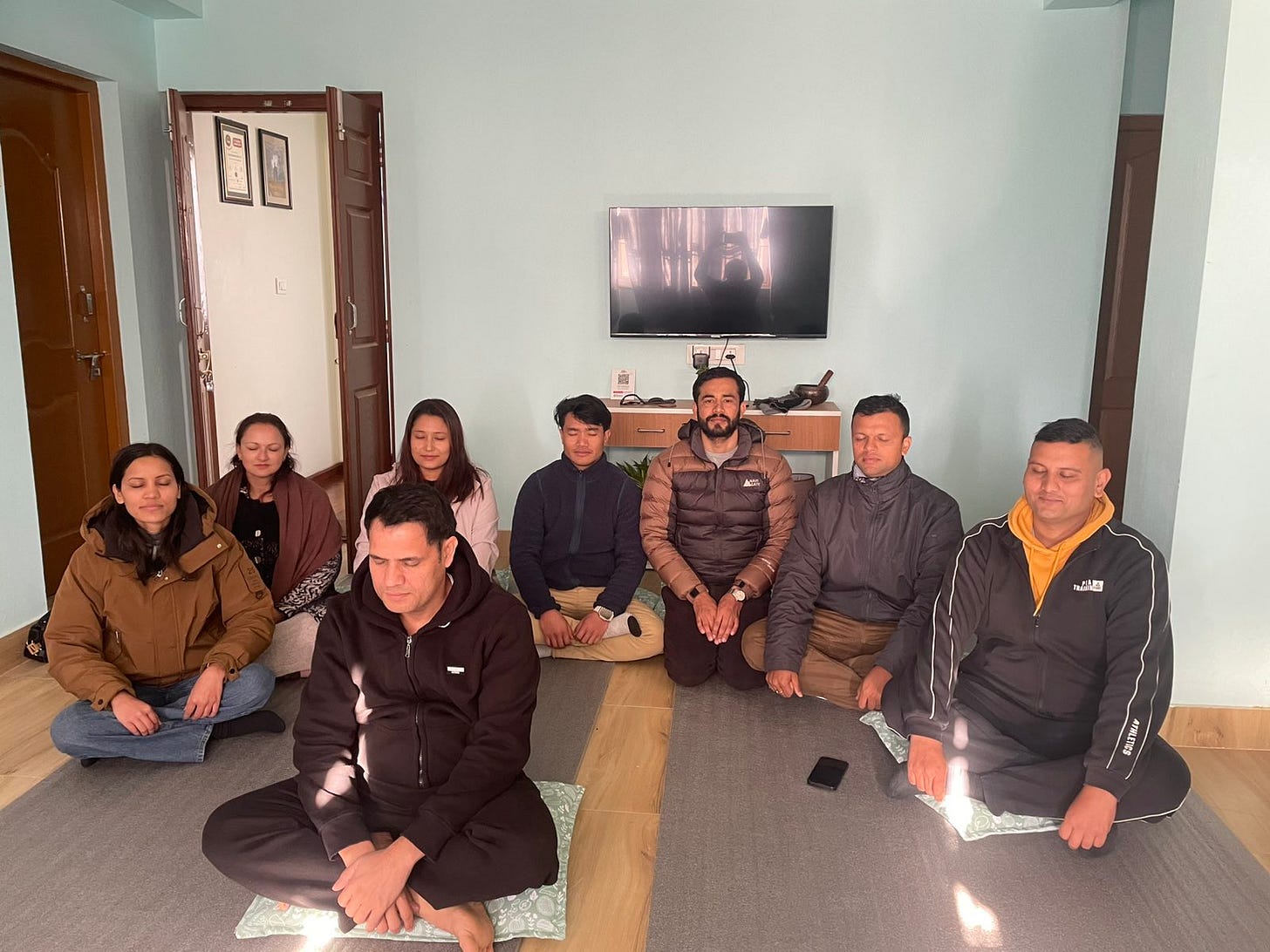Decentering and Practice in Mindfulness
Mindfulness, in its simplest form, is the practice of paying attention to the present moment with openness, curiosity, and non-judgment. It involves cultivating awareness of thoughts, emotions, and bodily sensations as they arise without becoming overly attached or reactive to them. Mindfulness has been extensively studied in psychological and neuroscientific research, demonstrating benefits such as stress reduction, emotional regulation, and enhanced well-being.
One crucial component of mindfulness is decentering, which refers to the ability to observe thoughts and emotions from a detached perspective rather than identifying with them. Decentering enables individuals to recognize that their thoughts and feelings are transient mental events rather than absolute truths. This cognitive shift is fundamental to mindfulness practice as it reduces emotional distress and promotes greater psychological flexibility.
Understanding Decentering in Mindfulness
Decentering, also referred to as cognitive defusion or meta-awareness, allows individuals to step back from their immediate cognitive and emotional experiences. Instead of reacting impulsively to distressing thoughts (e.g., "I am a failure"), a person practicing decentering might observe such thoughts as passing mental constructs (e.g., "I am noticing a thought that says I am a failure"). This shift helps reduce automatic emotional reactivity and fosters a more adaptive response to challenging situations.
Decentering is an essential skill in mindfulness-based interventions such as Mindfulness-Based Stress Reduction (MBSR) and Mindfulness-Based Cognitive Therapy (MBCT). Research indicates that developing decentering skills helps individuals cope with anxiety, depression, and chronic stress by reducing rumination and negative self-referential thinking.
Decentering in Practice: Examples
To better understand decentering, consider the following real-life scenarios:
Negative Self-Talk: A student preparing for an exam feels overwhelmed and thinks, "I will fail." Through decentering, the student recognizes this as a thought rather than an inevitable truth, allowing for a more balanced approach to studying.
Workplace Stress: An employee receives critical feedback from a supervisor and feels defensive. Decentering helps the employee acknowledge the emotional response without immediately reacting, creating space for a constructive interpretation of the feedback.
Interpersonal Conflict: A person argues with a friend and experiences anger. Instead of being consumed by the emotion, decentering enables them to recognize, "I am feeling anger right now," which can help in responding more calmly and mindfully.
Practices to Improve Decentering
While decentering is a skill that develops over time, specific mindfulness practices can enhance this ability:
Mindful Observation of Thoughts
Practice observing thoughts as if they were clouds passing in the sky. This visualization technique helps detach from thoughts rather than getting caught up in them.
Labeling Thoughts and Emotions
Use phrases like "I am noticing a thought that…" or "I am experiencing an emotion of…" This technique reduces identification with thoughts and creates psychological distance.
The Leaves on a Stream Exercise
Imagine placing each thought on a leaf and letting it float down a stream. This guided imagery practice fosters non-attachment to thoughts.
Body Scan Meditation
Bringing attention to bodily sensations rather than mental narratives can help shift focus away from rumination and cultivate a present-centered awareness.
Mindful Breathing with Awareness of Thoughts
During mindful breathing, notice when thoughts arise and gently return to the breath without engaging in the content of the thoughts.
~~~~~~~~~~~
🌿 Join Our Free Weekly Mindfulness Retreat! 🌿
People Development Lab (PDL) invites you to a 1-hour mindfulness retreat every Saturday morning, 7:45 AM onwards at our registered office in Thimi, Bhaktapur. 🧘✨
💡 What to Expect?
✅ 45 minutes of guided mindfulness practice
✅ 15 minutes of mindfulness discourse
✅ A calm and refreshing start to your weekend
📍 Location: PDL Office, Thimi, Bhaktapur
🕒 Time: 7:45 AM onwards
🪑 Seats Available: 20 (Advance Registration Required)
💰 Fee: Absolutely FREE!
Reserve your spot now! 📞 9840260426


